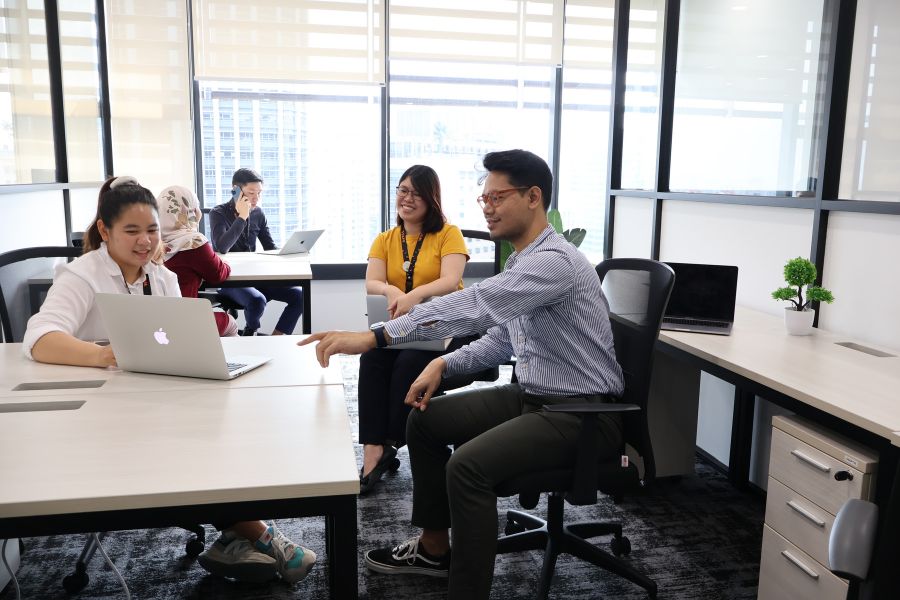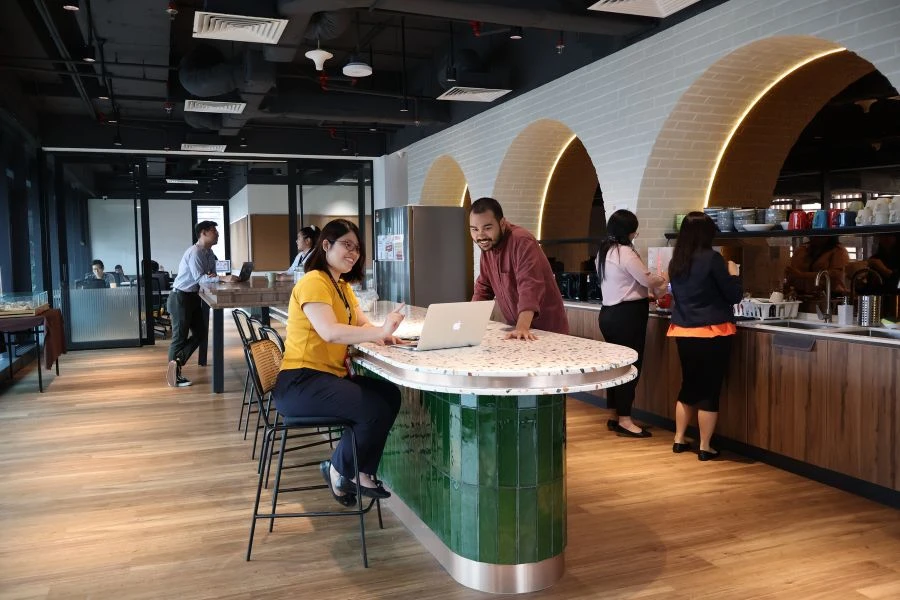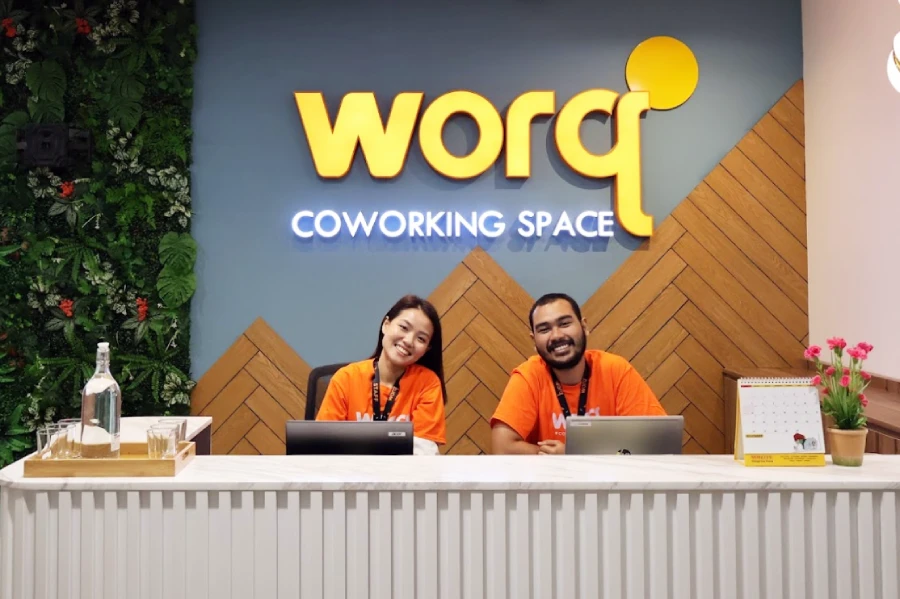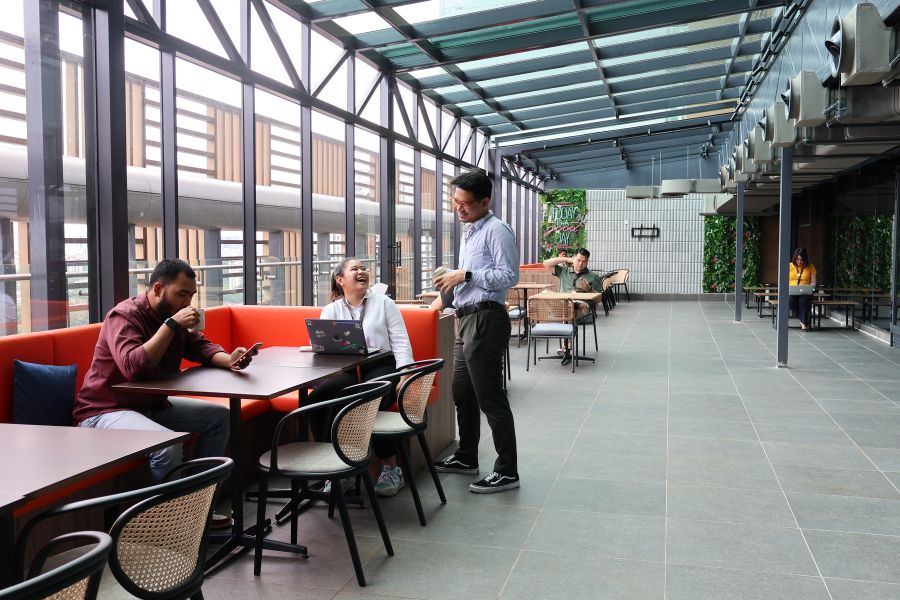Co-working spaces have been a popular choice for gig workers, freelancers, small start-ups, and micro, small and medium enterprises (MSMEs) for over a decade now.
However, it’s not just small businesses that are taking advantage of these shared spaces. Even large companies are finding these innovative office solutions attractive. According to CompareHero, this trend is set to disrupt traditional real estate markets that involve the rental of time, equipment, and space.
In Malaysia, co-working spaces are becoming an increasingly popular option for companies of all sizes. Bio-gas developer Cenergi SEA Bhd chose Common Ground Ara Damansara as its main office since October 2018.
Its head of corporate affairs, Azana Fariza, says that after comparing the costs of traditional office space to co-working, they found the latter to be more appealing, as it provided a fully furnished space and flexible seating arrangements that facilitated better communication and teamwork among employees.
Cost-effective & flexible

Leonard Khoo, the owner of a small business, also found co-working space to be a more cost-effective solution for his team of less than five people.
He said that all utilities, furniture, and cleaners are included in the membership, and that the low move-in cost allowed him to start his business without the need for any renovation or preparation work.
Moreover, Khoo believes that co-working spaces are great for networking and building collaborations with other businesses sharing the space.
Raja Nadia Raja Ahmad Tajudin Shah, the co-owner of a creative agency, found that co-working spaces offer a different and inspiring work environment with the added bonus of meeting new people and building networks.
Furthermore, co-working spaces present an instantly upgradable space for expansion needs that can accommodate rapid company growth.
For larger companies, renting co-working spaces can reduce the effort and costs that go into upkeeping a traditional office space.
Petronas Dagangan Bhd, a subsidiary of Petronas, has been renting a co-working space in Kuala Lumpur since August 2018, and it has been able to minimise its spending on meeting room rentals. The mix of start-ups and large corporations in the co-working space is seen as a win-win situation, as both can learn from each other.
Giant corporations can learn to deliver more meaningful innovations to customers from start-ups, while the latter can leverage the stronger infrastructures of the former to scale up.
Encourage productivity

Carsome, a pre-owned car trading platform, stated that renting a co-working space at Colony Mutiara Damansara has eliminated the hassle of administration-related matters and allowed the company to focus on expansion.
Similarly, Teleport, AirAsia’s cargo, and logistics platform, has reported that its employees were more productive and satisfied in a co-working space. The co-working environment encouraged Teleport to modify its human resource roles and focus on being proactive and people-centric.
The dynamic and ever-changing work environment also urged employees to become adaptive and avoid complacency.
WORQ Enterprise Solution: Opening coworking doors for large companies

WORQ, another co-working space, has achieved 80% occupancy for its largest outlet in KL Sentral. The new location was profitable from the first day, and 60% of it was pre-sold even before the renovation started.
WORQ’s CEO & co-founder, Stephanie Ping, stated that co-working spaces, such as WORQ, allowed companies to scale up and down easily and economically. Companies no longer need to deal with owning and managing real estate, and the space-as-a-service feature allows companies to have custom designed offices tailored to their identity.
WORQ’s Enterprise Solution is completely customizable, from selecting locations to requesting special custom amenities and bespoke design, thus removing the hassle of sourcing, renovating, and managing an office space.
Furthermore, WORQ’s client list includes numerous reputable companies such as PhillipCapital, HRnetGroup, Sibelco, Telum Media, LingoAce, Maybank, Alliance Bank, DHL, Saint-Gobain, Pertama Digital, Keypath Education, UOB, Singtel, RWDI, and Coda Payments.
Upscaling & downscaling are made easier
Companies are now turning to co-working spaces to scale up or down economically and quickly, especially in the post-Covid world. This concept is seen as more than just a space provider as it enables companies to be more agile and allows team sizes to scale without restrictions.
WORQ offers services that remove the hassle of managing and owning real estate from companies. Its Space-as-a-Service enables companies to focus on their core business while WORQ manages the office space.
Compared to traditional office leases that have a long-term nature and a fixed size, WORQ offers an on-demand solution that removes the need to fit a company’s headcount sizes into a pre-set space.
For companies with large headcount sizes that need a bespoke designed office for a shorter tenure, WORQ’s Enterprise Solution offers a customisable location, custom amenities, and bespoke design tailored to customers’ identity.
Xavier Arvind David, the head of APAC Finance and SEA Operations for Keypath Education, considers WORQ not only as an office space provider but also a reliable business partner.
However, operating coworking spaces have numerous misunderstandings surrounding it. Many people incorrectly believed that co-working spaces were solely intended for use by start-ups, freelancers, and gig economy workers. Due to this lack of comprehension among the public, raising funds during the company’s initial years proved to be quite challenging.
WORQ still managed to attract a small number of visionary investors who had the foresight to perceive the potential of co-working spaces. These investors included a venture capital firm managing more than RM2.7 billion in assets and backing 500 start-ups, Space Matrix, Cradle Fund, the founder of Buxani Group, Kishore Buxani, and JobsCentral co-founder Huang Shao-Ning.
WORQ has blossomed into one of Malaysia’s largest and most successful co-working space providers since its humble beginnings. In fact, the company has been profitable since its inception in 2017.
Coworking spaces are the future of office spaces

Moving forward, it appears that co-working spaces will become the means of using office spaces. Both JLL and CBRE, global real estate consultancies, anticipate that 30% of all office spaces will be flexible in the long run.
According to CBRE’s 2022 Spring APAC survey, it is expected that 70% of businesses will be using some form of co-working space by 2025.
The Instant Group, a workspace innovation company, also reported that half of landlords expect to allocate 25% of their office portfolio to flex spaces. At the same time, the National Property Information Centre revealed that there were 33 million sq m of vacant office spaces in Klang Valley as of 2022.
This trend presents ample growth opportunities for co-working spaces, as they could potentially transform these vacant spaces into lively workplaces, thereby reducing the overhang by up to 20%.
Stephanie Ping predicts that revitalising these underutilised assets could result in as much as RM2 billion of property appreciation.
Phillip Capital Management’s CEO, Linus Lim Wen Sheong, an early supporter and repeat investor of WORQ, commented on the company’s strategic acumen and its ability to anticipate market needs. He added that WORQ’s value-for-money solution had the potential to garner the highest market share by serving the mass market.
Arsh Chaudhry, CEO of global design firm Space Matrix, noted WORQ’s consistently profitable model, which ensures that every outlet generates cash flow. He also pointed out that WORQ’s business model was scalable and sustainable. He affirmed that WORQ’s strategic approach to the flex space industry was very intelligent.
Thanks to its tried-and-tested business model, strong unit metrics for each centre, and ability to quickly and profitably open new outlets, WORQ is set to triple its presence in the next two years.
By 2030, the co-working space industry is projected to grow to RM1.3 billion. Ping believes that WORQ will secure more than 50% of that market share by building up to three million sq ft of co-working spaces in Malaysia in the mid-term.
”[WORQ's] strategic decision to serve the mass market by providing a value-for-money solution has the potential for garnering the highest market share."
Linus Lim Wen SheongCEO of Philip Capital Management
This article was published by The Malaysian Reserve. It is reshared by WORQ with the necessary edits.




